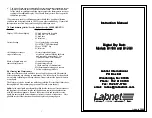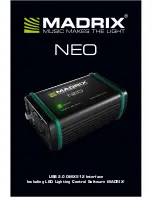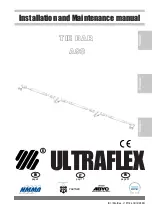
406388/F
309
Overview of sensors
channels and frequencies
If many acoustic systems are used simultaneously, due care must be taken to prevent
acoustic interference between the different instruments. In order to avoid interferences
between sensors, their communication channel must be different. If you have two
or more catch monitoring sensors on board, you need to make sure they do not use
the same frequency range.
All sensors are provided by Kongsberg Maritime with predefined communication
channels.
Note
It may be required to change one or more communication channels, and there may
be many reasons for this.
• You have more than one of each sensor. For example, if you have three temperature
sensors, they MUST communicate on three different channels.
• Other vessels near yours use the same catch monitoring system (or similar) and they
have one or more of their sensors set up to the same communication channels as you
have. This will create interference as you will “read” other sensors.
• If your sensors are set up to use communication channels too close to each other (for
example, if you have chosen channels 4, 5 and 6), this will limit the speed of the
vessel. The reason for this is the Doppler effect.
• If you operate at the maximum range of the sensors, you may be able to increase this
range slightly if you use lower communication channels. This is because the lower
communication channels use lower transmission frequencies.
Our catch monitoring sensors communicate on a frequency range from 40 to 50 kHz.
The following table shows the equivalence of communication channels to frequencies of
different catch monitoring sensors
Summary of Contents for Simrad TV80
Page 1: ...kongsberg com simrad Simrad TV80 REFERENCE MANUAL ...
Page 2: ......
Page 353: ......
Page 354: ... 2021 Kongsberg Maritime ...
Page 355: ......
Page 356: ...Reference Manual Simrad TV80 ...















































